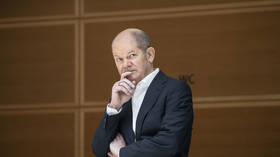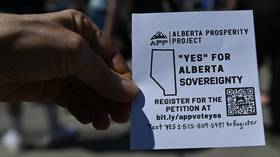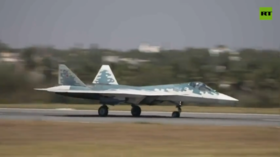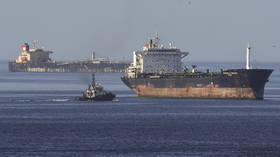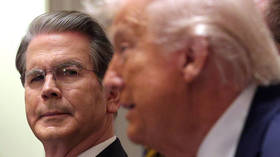IMF warns about confiscating Russian assets

Any steps towards seizing Russia’s frozen reserves should be backed by legal support in order to avoid the risk of undermining the global financial system, Alfred Kammer, the director of the IMF European Department, has said.
The EU and other G7 nations have blocked an estimated $300 billion in assets belonging to the Russian central bank since the start of the Ukraine conflict in 2022. Of that amount, €196.6 billion ($211 billion) is being held by the Belgium-based clearinghouse Euroclear. Since last year, those funds accumulated nearly €4.4 billion in interest.
“With regard to the seizure of Russia’s assets … our view is that is something for the relevant jurisdictions and courts to determine and to decide,” Kammer told a press briefing on Friday, reiterating the IMF’s previous statements on the matter.
“From our side, what is important is that whatever action is taken, that the implications of the functioning of the international monetary system are being taken into account,” he said.
Kammer recalled IMF managing director Kristalina Georgieva’s words, that “one needs to be wary of unintended consequences” of such actions.
“And again, this is the issue of a multilateral rules-based system and a well-functioning international monetary and financial system, which we all should be respectful for, because it delivered… prosperity over last decades,” Kammer said.
The IMF has previously cautioned that Western plans to seize frozen Russian assets could pose a threat to the global monetary system and entail unforeseen risks.
Some Western officials have been pushing for the outright seizure of the Russian funds and for transferring proceeds to Ukraine, or at least using the interest generated by the assets.
While Kiev’s Western backers generally agree that the frozen assets should be used to aid Ukraine, they are at odds about whether an outright seizure would be legal. The US and UK support the direct expropriation of the funds, but some EU member states, France and Germany in particular, warn that the move would erode trust in the European financial system.
The EU’s foreign policy chief, Josep Borrell, last month proposed using the profits generated by Russia’s frozen central bank reserves to support Ukraine militarily.
Moscow reacted to the diplomat’s proposal by warning that it would lead to disastrous consequences. Kremlin spokesman Dmitry Peskov stated that all EU nations and officials that back Borrell’s plan would be subject to “legal prosecution for many decades to come.”
Russia has said that any actions taken against its assets would amount to “theft,” stressing that seizing the funds or any similar move would violate international law and undermine Western currencies, the global financial system, and the world economy.
